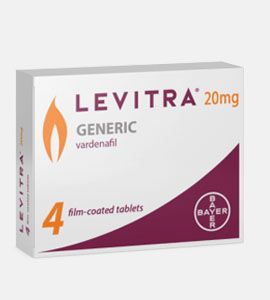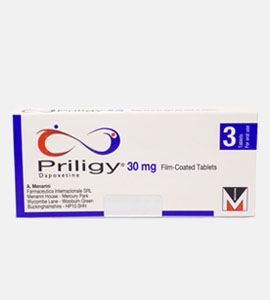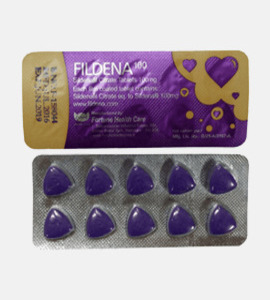Description
Common use
Levitra is an oral drug used to treat erectile dysfunction. Sexual stimulation causes the production and release of nitric oxide from the nerves endings of the cavernous bodies of the penis hereby activating enzyme guanylate cyclase. Guanylate cyclase in its turn is responsible for the production of cyclic guanosine monophosphate (cGMP). The cGMP causes widening and relaxation of the blood vessels carrying blood to the penis. Levitra prevents phosphodiesterase-5 enzyme from destroying cGMP and thus helps to support blood flow to the penis.
Dosage and direction
The recommended dose of Levitra is 10 mg per day taken an hour before intercourse. If no side effects are experienced the dosage can be increased up to 20 mg. In case of adverse effects, the dose is reduced to 5 mg daily. Do not take more than one tab of Levitra a day.
Precautions
Levitra has not been studied in people with cardiovascular disease, so it is preferable to avoid Levitra if in patients who have a stroke or heart failure, or a heart attack in history and especially within last six month. Before to take Levitra to inform your doctor if you have kidney or liver problems, a bleeding disorder, stomach ulcer, or an inherited retinal disorder such as retinitis pigmentosa, allergic reaction to this medicine or any other medicines, deformation of the penis such as angulation, cavernous fibrosis (Peyronie's disease), as well as in diseases that contribute to the development of priapism (sickle-cell anaemia, multiple myeloma, leukaemia, or leukaemia).
Contraindications
Levitra is contraindicated in patients with hypersensitivity to its ingredients, ones treated with organic nitrates, in patients under 16 y.o., or those who take HIV protease inhibitors such as indinavir and ritonavir.
Side effects of Levitra (Generic) might include:
• stuffy nose;
• dizziness, headache or feeling light-headed;
• nausea and/or diarrhoea;
• rarely hyper- or hypotension, back pain, watery eyes, myalgia, priapism (a prolonged and painful erection that must be reported to a doctor if does not disappear for more than 4 hours, otherwise it may cause damage to the penis).
To decrease the risk of developing side effects, it is required that your doctor authorized usage of Levitra (Generic) if you:
• are under 16;
• are taking HIV protease inhibitors containing indinavir or ritonavir; medications containing organic nitrates and those containing erythromycin, itraconazole, ketoconazole, or terazosin
• suffer from cardiovascular diseases, priapism, kidney/liver/blood conditions, stomach ulcer, retinal disorders (e.g. retinitis pigmentosa), multiple myeloma, leukaemia, or sickle-cell anaemia;
• are allergic to vardenafil or any other medications, foods or substances;
• have your penis deformed due to angulation or cavernous fibrosis.
Drug interaction
Levitra's metabolism is inhibited by erythromycin, ketoconazole (Nizoral), itraconazole (Sporanox), indinavir (Crixivan) and ritonavir (Norvir). Levitra reduces the concentration of ritonavir and indinavir. In patients treated with nitrates, Levitra may aggravate chest pain by increasing heart rate and lowering blood pressure. Levitra is able to exaggerate the blood pressure lowering effects of alpha-blocking drugs (terazosin or Hytrin). Levitra never should be administered in patients who are treated with organic nitrates.
Missed dose
Levitra is taken when needed but not more often than once daily so missed dose is not supposed.



